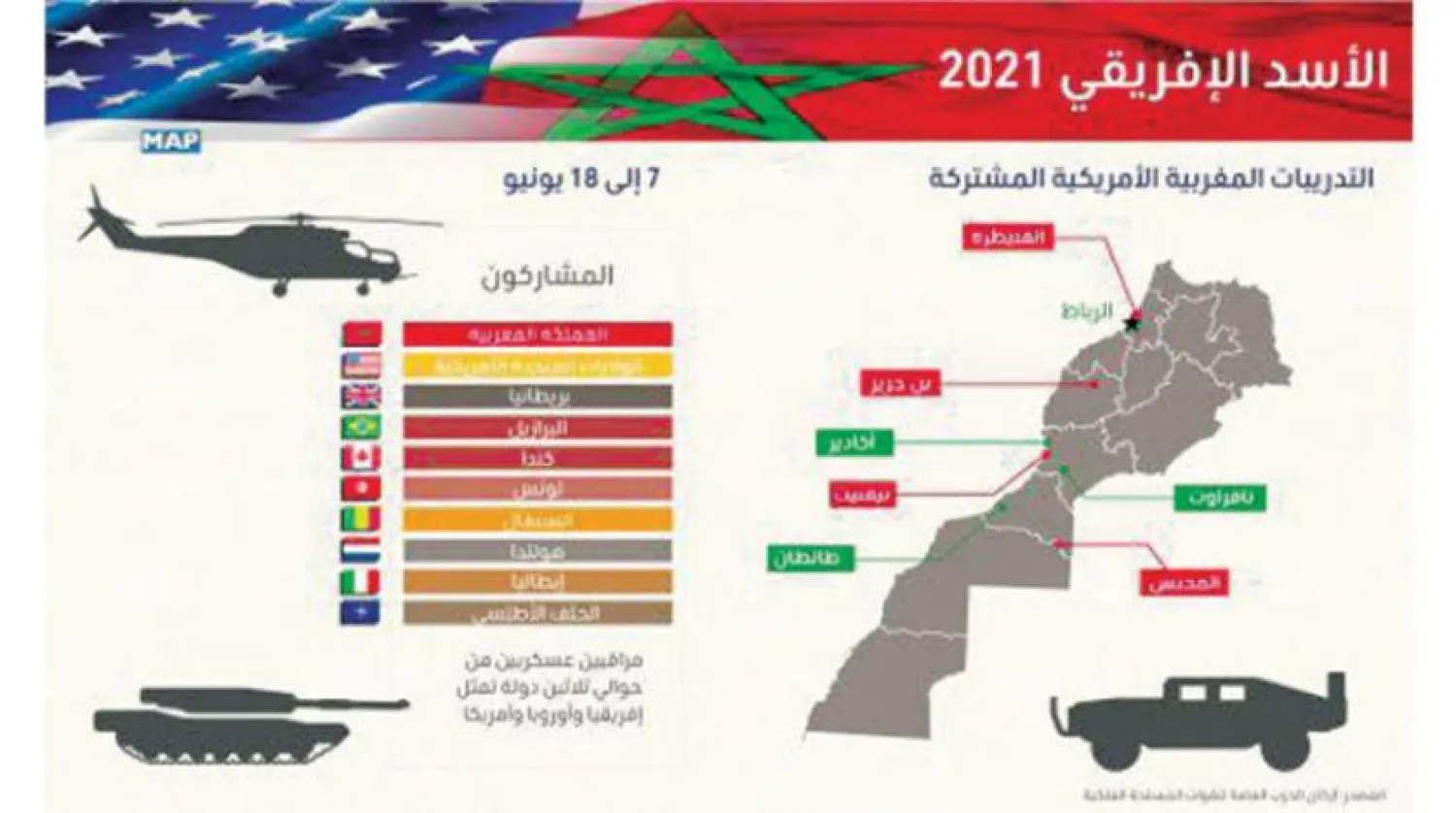Morocco announced that the US-Moroccan “African Lion 2021” maneuvers that will kick off on Monday will include Western Sahara.
This comes four days after the US Department of Defense denied an earlier Moroccan statement indicating that part of the "African Lion 2021" will take place in the region.
"Exercise locations are spread mainly across Morocco, from Kenitra Air Base in the north to Tan Tan and Guerir Labouhi training complex in the south," the Pentagon statement said.
The statement pointed out that the US and Moroccan parties, who prepared for these maneuvers, decided to "use the sites proposed at the beginning of the planning cycle in the summer of 2020", that is, months before US President Donald Trump announced in December 2020 his recognition of Moroccan sovereignty over Western Sahara.
The drills, which will last till June 18, will take place in Agadir, Tifnit, Tan Tan, Mehbes, Tafraout, Ben Guerir, and Kenitra, with the participation of thousands of troops from several countries and a large number of land, air, and sea equipment, according to the General Staff of the Royal Armed Forces (RAF).
In addition to the US and Morocco, the 17th edition of this exercise will see the participation of the UK, Brazil, Canada, Tunisia, Senegal, the Netherlands, Italy as well as the NATO and military observers from 30 countries representing Africa, Europe, and the US.
The exercise, one of the major combined exercises in the world, aims to strengthen the maneuver capabilities, consolidate interoperability between participants in the planning and conduct of joint operations in a coalition framework, as well as perfecting tactics, techniques and procedures.
It also aims to develop cyber defense skills, train the air component in supporting and air refueling operations, consolidate cooperation in maritime security, conduct exercises of naval tactics and conventional warfare, and carry out humanitarian activities.
It will also include training and simulations in command activities and combat operations against violent terrorist organizations, as well as nuclear, radiological, biological, and chemical decontamination exercises.
A field medico-surgical hospital will be established at Amlen where medical teams of doctors and nurses from the FAR and the US Army will provide medical and surgical services for locals.









